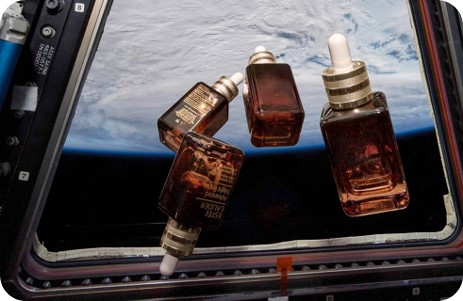4th April 2022
The new space race
Mindshare’s Culture Vulture is an annual trends report from our Customer Strategy team that identifies the macro trends pervading U.S. culture and how they impact the marketing and communications strategies for clients. We're kicking things off with one trend per week - stay tuned for more content around the topics of subscriptions and payments, sustainability, fame, and more.
The 50’s and 60’s saw the space race as countries raced to reach the moon. Since that time, space has become a lot more crowded; over 72 countries now have space programs with China recently launching their own lab to rival the International Space Station (ISS).
International cooperation has given way to competition between private enterprises today, led by billionaires like Elon Musk and Jeff Bezos. The original quest for knowledge and exploration now competes with commercial goals. Prices vary between operators: Branson’s Virgin Galactic charges $450,000 while a ticket on Musk’s SpaceX to the ISS costs over $18 million. There are over 10,000 private space companies around the world, valued collectively at $4 trillion.
Space has opened up for commercial endeavors. From movies filmed in the ISS to Mars-themed donuts to commemorate the anniversary of Perseverance, brands are eager to enter this new frontier.


Outer space isn’t the only arena where competition is heating up: cyber space is seeing their own arms race thanks to the metaverse.
Billed as the internet embodied in 3D, the metaverse offers a virtual digital environment that connects people across different communities and platforms; think of the Oasis from Ernest Cline’s Ready Player One. The biggest face of this revolution is Meta, formerly Facebook, but other companies like Microsoft and Epic Games are carving out their own niche within work, gaming, and education in what they see as the future of connectivity. While the hopes are of becoming one unified interconnected world, the Metaverse is currently divided by platforms, each with their own set of rules and formats. Places like Roblox lean into gaming while platforms like Decentraland are for virtual real estate. Companies like Qualcomm and their Snapdragon Metaverse Fund are looking to bridge this divide, by investing in developers big and small, more unique and diverse perspectives can be represented.
This digital transformation also coincides with the rise of the blockchain, cryptocurrencies, and NFTs. Digital ownership is at the heart of both disruptions, and we are seeing a natural collaboration between these entities. Your virtual avatars can now wear digital clothing bought using crypto tokens, and brands like Nike and Gucci have already begun to design and sell virtual products.
Data privacy concerns in this new sphere have arisen thanks to Meta’s lead involvement in the space. Standards and protocols still need to be set, but it can be hard to predict how these new innovations will affect behavior in the future. Others are worried about the separation of our digital and physical lives, whether virtual interactions are a viable replacement for real world experiences, and whether people will be able to use the metaverse in moderation and not become addicted and neglect their real-world counterparts.
The metaverse has the potential to offer a limitless universe of experiences and fundamentally change our economy and social lives, but will it become a utopia or will we inevitable bring into it all the same problems we have with the internet and social media today?
Key Implications for Brands:
- Understanding the role that the metaverse can play into all aspects of your brand - not just in virtual experiences, but in areas like commerce, CRM, and learning.
- The convergence of virtual and real-life products/services - as the metaverse blends the boundary between the virtual and real-world, consumers want digital counterparts to their physical products and vice-versa. Brands are both duplicating and reinventing their offerings to take advantage of the endless possibilities not available in real life.
- Anticipation of innovation in the space, and deciding whether to act on these new areas like NFTs or certain platforms, or wait for mass adoption. Brands are experiencing FOMO and many are jumping into the metaverse without doing their due diligence. While some have found success in engaging with their customers, others have fallen flat, even upsetting their base. For many, the tech and customers are not yet ready for the metaverse and brands trying to keep ahead of the curve risk overloading consumers with ideas that aren’t fully materialized.
- Looking into the future - it remains to be seen whether the metaverse is going to be this seismic shift in our digital paradigm, or the natural progression of our physical and virtual worlds being more entwined. Either way, it’s important to understand where your brand sits regarding the individual components like NFTs, virtual goods, platform interoperability, and collective identities within this new realm.